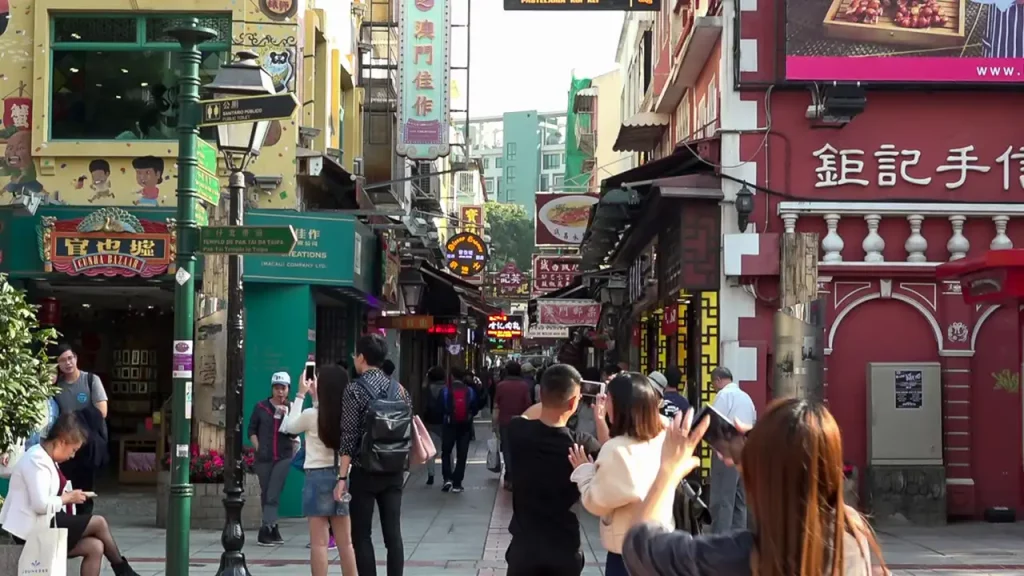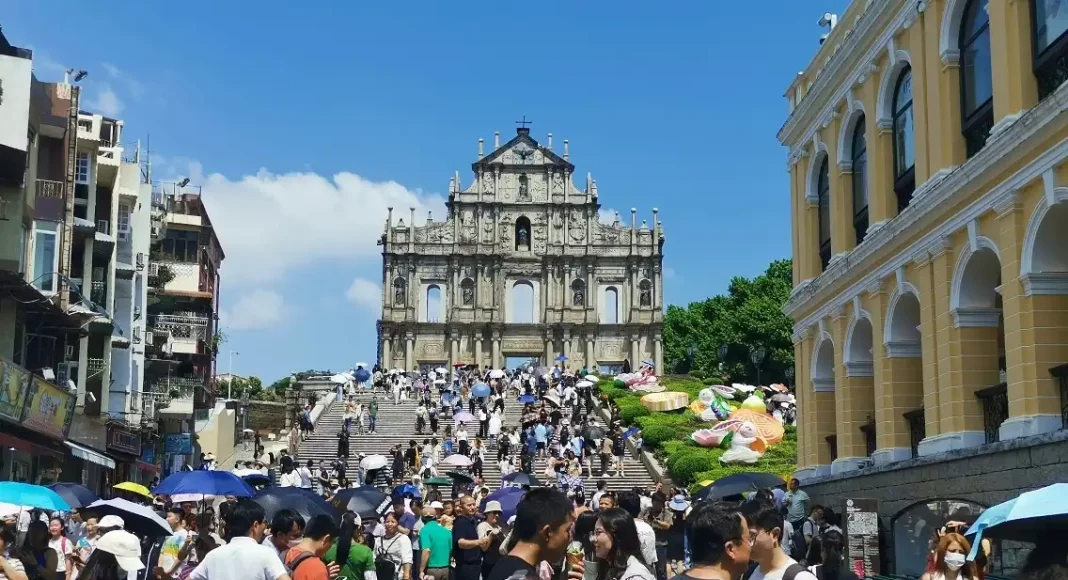The ‘sharper-than-expected slowdown’ post the Chinese New Year (CNY) holidays is the reason for the lower recovery rate in Macau’s gross gaming revenue (GGR) in February compared to the previous months, says Goldman Sachs.
Macau’s GGR reached MOP18.5 billion ($2.29 billion) in February, representing 70 percent of the pre-COVID level, compared to 78 percent and 81 percent in January and December, respectively, according to Goldman Sachs.
According to the latest investment memo, Macau’s daily GGR dropped from MOP715 million ($88.9 million) during the first two weeks of February to MOP543 million ($67.5 million) over the past 1-2 weeks, returning to its late last year’s run-rate.
Macau’s February GGR reflects a 4.4 percent decrease from January’s MOP19.3 billion ($2.4 billion) and a 5.2 percent decline compared to the October high of MOP19.5 billion ($2.41 billion).
Daily inbound visitation also decreased to about 80,000, which represents 72 percent of the 2019 level, compared to 100 percent recovery during CNY. The research team notes similar trends in nearby Hong Kong, with tourist arrivals slipping back to 60 percent in recent days compared to 78 percent during CNY.
Analysts Simon Cheung, Alpha Wang, Leah Pan, and Dorothy Wong note that travel and leisure demand might have been even more exhausted due to an extra day of CNY holidays. In the past, CNY holidays have lasted only 7 days, whereas this year, it was extended to 8 days. The brokerage expects that March and April GGR data will ‘remain steady’ due to seasonal factors before picking up again during the Labor Day holidays in May.

IVS expanded viewed positively
Goldman Sachs mentions that casino operators viewed the Chinese government’s recent announcement to add two more Chinese cities (Xi’an, Qingdao) under the Individual Visit Scheme (IVS) positively – the first time it has done so in the 21 years since the introduction of the IVS scheme back in 2003.
‘This should help boost both Macau and Hong Kong’s tourism industry recovery by bringing the total number of IVS cities from 49 to 51 and expanding the scheme’s mainland China population/GDP coverage from 32 percent/45 percent to 33 percent/47 percent respectively.’
Depending on its effect and whether city travel infrastructure can cope with such an addition, media reports have suggested that more cities could be included. Harbin and Hainan may be the next batch of cities for consideration.
For context, of the 72 percent of Macau’s inbound travelers coming from mainland China in January last year, this is compared to 19 percent from Hong Kong, and 9 percent from other countries. This means that close to two-thirds used IVS visas, and the rest used group tour, business, or transit visas, etc.
Five out of the six Macau-based casino operators have reported their 4Q23 results so far. Goldman Sachs highlights that MGM China gained 1.7 percent GGR market share quarter-over-quarter at the expense of Sands China, which recorded a 1.3 percent market share loss, dragged by an unfavorable win rate.
Galaxy Entertainment Group’s share reduced by 0.8 percent due to renovation works, while Wynn and Melco’s market shares were relatively steady. SJM is expected to also report stable GGR market share in 4Q23.











